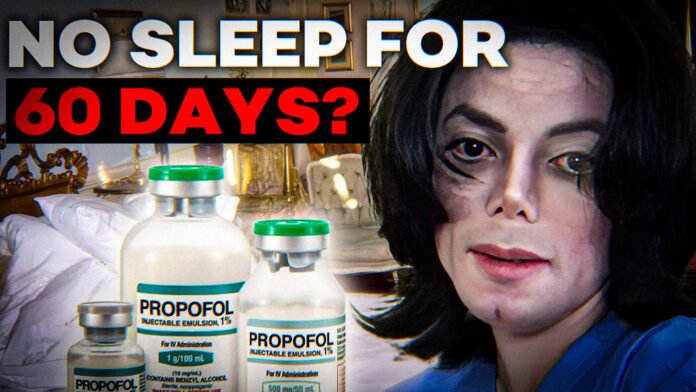Michael Jackson, the King of Pop, captivated the world with his extraordinary talent and relentless pursuit of perfection. But behind the dazzling performances and iconic music videos was a man who struggled with sleepless nights and intense pressure. In his final years, Michael turned to a powerful drug, propofol, in a desperate attempt to find rest. What followed was a tragic series of events that led to his untimely death. Today, we’re diving deep into the heartbreaking story of Michael Jackson’s last days, uncovering the chilling details of how a global superstar lost his life—not on stage, but alone, in his own home. Stay with us as we explore what really happened.
It was the comeback that everyone was waiting for, but it never happened. Michael Jackson, the King of Pop, was all set to take back his place at the top with a series of sold-out concerts. The world was eager to see a legend return, with performances that would shift the focus from his troubled personal life back to his unmatched talent and creativity. Jackson’s legacy was enormous —his album Thriller alone had sold 120 million copies, making it the best-selling album of all time. But in 2009, as he was getting ready for his 50-show comeback tour, This Is It, at London’s O2 Arena, Michael Jackson was facing struggles that went far beyond what anyone could see on stage.
Behind the scenes, Michael Jackson was battling an addiction to prescription drugs, filled with self-doubt, and overwhelmed by a massive amount of debt. His final days were full of contradictions—he was working hard in rehearsals for his big comeback, but at the same time, he was dealing with deep inner struggles.
On June 25, 2009, less than three weeks before the start of This Is It, Michael Jackson passed away at the age of 50 in his rented home in Los Angeles. In early 2010, the official coroner’s report confirmed that he died from acute propofol intoxication. Propofol, a strong aesthetic typically used in surgeries, had been given to Jackson by his personal doctor to help him sleep.
This Is It was meant to be more than just a concert; it was a message to the world that Michael Jackson still had the magic that made him a global superstar. The tour was also crucial for his finances; Jackson’s lavish spending and reduced income had left him with around $400 million in debt. This comeback was supposed to save him, both artistically and financially. But as the opening night approached, Jackson’s behavior became more and more unpredictable.
Michael Jackson was rehearsing for hours every day, putting his all into new songs and the detailed choreography that defined his performances. But those close to him started noticing worrying changes. Karen Faye, the makeup and hair artist for This Is It, described Jackson in his final days as paranoid, shivering, and often repeating himself. Faye, who had worked with Jackson for years, testified in 2013 during a wrongful death suit against AEG Live, the concert promoter, that by June 2009, Jackson was no longer the person she knew. He had become a shadow of his former self—emotionally fragile, physically thin, and deeply troubled.
During a rehearsal in mid-June, Karen Faye noticed that Michael Jackson seemed “very stoic” but also “scared.” He kept muttering, “Why can’t I choose?” over and over again. Despite being nearly six feet tall, Jackson weighed only 130 pounds. The change in him was both shocking and tragic.
During this time, Michael Jackson’s inner circle included both familiar faces and new people. Longtime collaborators like manager Frank DiLeo, show director Kenny Ortega, and choreographer Travis Payne were joined by newcomers like Dr. Conrad Murray, a personal physician Jackson had met in 2006. Murray was hired by AEG Live in May 2009 to keep Jackson in top shape for the tour, but the situation was much more complicated.
Michael Jackson had been dealing with chronic pain for decades, caused by injuries like the severe burns he got during a Pepsi commercial in 1984 and a back injury from a stage collapse at a 1999 concert in Munich. His pain was made worse by a long struggle with insomnia, which had only gotten worse over time. His dependence on prescription drugs became public in 2007 when a Beverly Hills pharmacy filed a complaint against him for not paying a $101,926 bill for medications.
As the start of This Is It got closer, Michael Jackson’s health worsened. Dr. Murray, who spoke to police after Jackson’s death, admitted he had been giving Jackson propofol to help him sleep. This strong anesthetic is meant for hospital use, but it became Jackson’s only relief from his severe insomnia. After a particularly bad rehearsal on June 13, Jackson missed the next day’s rehearsal on Murray’s advice. AEG Live, worried about keeping the tour on schedule, made Murray responsible for getting Jackson to rehearsals, but his absences continued.
By June 19, when Michael Jackson finally came back to rehearsals, Kenny Ortega saw that he seemed “lost, cold, and afraid.” Ortega was very worried and suggested that a psychiatrist should check Jackson’s mental and physical health. However, during a meeting at Jackson’s home on June 20, Dr. Murray insisted that Jackson was able to handle the tour’s demands and that he alone should make decisions about Jackson’s health.
Just two days before his death, Michael Jackson seemed to have improved. At the final dress rehearsal on June 23, he was energetic and enthusiastic, showing the spirit that had made him famous. Kenny Ortega was thrilled, thinking Jackson was finally ready to reclaim his title as the King of Pop. But this improvement was short-termed.
On the evening of June 24, after another successful rehearsal at the Staples Center, Jackson went home and started to fall apart. He was exhausted, and even though Dr. Murray tried to help him sleep with less strong sedatives, Jackson kept asking for propofol. By mid-morning on June 25, Murray gave in and administered the drug through an intravenous drip. He then left Jackson alone, which was a crucial mistake.
Dr. Murray said he was gone for just two minutes, but when he came back, Jackson wasn’t breathing. Instead of calling 911 right away, Murray tried to revive Jackson himself, but his attempts were both delayed and ineffective. By the time paramedics arrived and took Jackson to UCLA Medical Center, it was too late. The King of Pop was gone.
The aftermath of Michael Jackson’s death was filled with legal battles and public outrage. Dr. Conrad Murray was found guilty of voluntary manslaughter for his role in Jackson’s death and served two years of a four-year sentence. Even with the conviction, many people felt that Jackson’s death was not just caused by one person but was the result of years of exploitation, isolation, and uncontrolled addiction.
In the end, Michael Jackson’s life was a tragic contradiction. He gave the world everything he had—his music, talent, and heart—yet in his final years, he was surrounded by chaos. He was a global icon who just wanted to sleep and find peace in a world that had become overwhelming.
Jackson’s last message to the world wasn’t spoken but sung during his final rehearsal. He performed hits like “Smooth Criminal,” “Billie Jean,” and “Thriller,” showing the brilliance that once amazed millions. But behind the scenes, the man who had seemed invincible was falling apart. As he hugged his dancers and thanked the crew that night, no one could have known it would be the last time they would see him alive.
Michael Jackson’s brain was basically dead before his body was. Michael did not sleep for two months. He was “knocked out” since he would get propofol by IV. Anyone who has some knowledge in drugs, knows that it has nothing to do with real sleep. I don’t want to go in too many details but it’s used for surgery to turn off the brain but it is not a natural sleep. Actually, before 2009 there was no study of using Propofol for insomnia. In 2010 a study has been done and doctors would claim that there is only a very very few percent, less than 1% for Propofol to help with insomnia. He would not be in as much REM sleep as he should have been. Michael came back from his rehearsal on 25th June, took a shower then went to bed. As always, he’d be given sedatives by Conrad Murray According to the doctor nothing helped Michael to put him sleep. Michael begged the doctor to give him Propofol (Milk, the way Michael would call it). So, he gave it to Michael. 25 milligrams which is not enough for a person like Michael who was 50 to 60 kg to “sleep” only for 5–7 minutes then the person would awaken. So, he must have given him more. Because he claimed to watch Michael more than 30 minutes and he would be asleep. Well, Conrad was not that qualified since he told he knew Michael was in a deep sleep because he snored. Propofol can be used only in hospitals while monitoring the patient and only with an anesthesiologist. Conrad was a cardiologist, this happened at Michael’s home without any equipment. No monitor.
By the way Michael knew that he needed to be monitored while being given propofol since he had gotten it for years. And he said ” I want to be knocked out” “They just have to monitor me while I’m sleeping”. So, I’m wondering what the doctor said that kept Michael from being worried about it. Michael didn’t want to die he just wanted to sleep. He was a father of three. He knew it was not a game. So, the doctor gave him Propofol by IV into his foot since his veins were in a terrible condition on his arm. And he left Michael. You NEVER leave someone who is on Propofol. He went out and started to make calls. While Michael was not breathing for minutes. He didn’t notice it. After he recognized it he wouldn’t do anything at first , he was kinda in shock. Then he started to give him some medicine that can help reverse the effects of the Propofol, Lorazepam and all the other sedatives. He called security to get help. How does it make sense. He should have called 911 immediately. He didn’t call them. He waited for about an hour. He started to do CPR WRONG. On the bed with one hand… How can a doctor do that. He would not give the information to the paramedics. He lied and told them the situation just happened right before they called nine one one. He claimed that he felt a very low pulse. Well, in that case if he felt a little pulse, called 911 before just that happened, Michael Jackson’s life could be saved in 99%. The way I think it happened, after Conrad had left the room, Michael’s brain turned off totally so it didn’t give the information to his heart and lungs to work, he was choking, collapsed then died. When Conrad noticed that something had been wrong it was way too late. Michael had been already dead before the ambulance would arrive. So, he directly died from a stupid doctor but indirectly he died from loneliness since nobody was on his side.
Michael Jackson’s death was a loss felt around the world, but for those who knew him, it was also a release. The chaos, the pain, the struggles that had haunted him for so long were finally over. Yet, the questions remain—what really happened during those final years? Was his death the inevitable result of years of pressure and pain, or could it have been prevented?
As we look back on Michael Jackson’s life, we are left with a haunting image of a man who had everything, yet nothing at all. A man who lived for his music but was ultimately consumed by the very forces that made him a legend. In his final moments, Michael Jackson was not the King of Pop, but a man desperate for rest, for peace, for an end to the chaos that had become his life.
Michael Jackson’s death was more than just a medical tragedy; it was the result of a profound loneliness and a series of fatal mistakes. The King of Pop didn’t want to die—he just wanted to sleep. Yet, the very people who were supposed to care for him failed to do so when it mattered most. Let Michael’s story be a reminder of the importance of proper care and compassion, even for those who seem larger than life
Michael Jackson’s death wasn’t just the loss of a music legend—it was a sad end to a life filled with too much pressure and deep loneliness. In his final moments, the man who brought so much joy to the world was desperately looking for something he couldn’t find—peace. We have to ask ourselves: How did things get this bad? Was there more that could have been done to help him with the pain he was going through?
As we remember Michael, let’s not only celebrate the music and magic he gave us but also think about the person he was behind the fame. His story reminds us that even those who seem strong can be fragile. If you found this video meaningful, please like, share, and subscribe for more stories about Michael Jackson. Let’s keep Michael Jackson’s memory alive, not just as the King of Pop, but as a man whose story deserves to be told with honesty and care.


